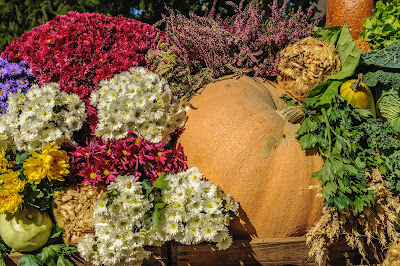Fibre and Weight Loss
Fibre and Weight Loss - What is Fibre?
Roughage or fibre is part of plant based food that cannot be broken down. Examples of fibrous foods are nuts, fruit, vegetable, beans and grains. Fibre passes through the body undigested which keeps your digestive system healthy and eases bowel movements. Fibre also flushes cholesterol and harmful carcinogens (a substance capable of causing cancer in living tissue) out of our body.
Fibre rich foods within a balanced and healthy diet can improve weight maintenance and improve good gut health. Fibre provides a good food source for "friendly" gut bacteria helping to improve our overall general health. A healthy gut is very important to maintain or improve our health. Anything that can feed our good gut bacteria will keep us free from illness. When our gut is happy then we are happy too.
In 2015 the Government guidelines for the consumption of fibre equates to 30g per day per adult. On average we consume approximately 18g per day which is a lot less than we should be aiming for.
Where to get your fibre - British Nutrition Foundation
How Does Fibre Help With Weight Loss
Increasing your fibre intake will increase your chances of loosing those pounds even if you do not make any other changes in your current eating habits. Fibre food is more filling, digests a lot slower than non fibrous carbohydrates (such as white rice, breads and refined sugary foods), plus fibre has so many other health benefits. The following video will give you some helpful hints on adding fibrous foods to your diet to help you to loose weight:
Fibre Rich Food for Weight Loss
Fibre Rich Food
Fruit
- Pears - Tasty and nutritious. A great source of fibre at 5.5g per medium size (3.1g fibre per 100g)
- Strawberries - Low calorie, nutrient dense, full of vitamin C, manganese at 2g fibre per 100g
- Avocados - Loaded with good fats, vitamin B,C, E, magnesium at 6.7g fibre per 100g
- Apples - Tasty and filling at 2.4g fibre per 100g
- Raspberries - Full of vitamin C and manganese at 6.5g fibre per 100g
Vegetables
- Carrots - High in Vitamin B6, K, magnesium and beta-carotene at 2.6g fibre per 100g
- Broccoli - High in vitamin B.C.K. folate, potassium, manganese, iron at 2.6g fibre per 100g
- Sprouts - High in vitamin K, potassium, folate at 2.6g fibre per 100g
Nuts
- Almonds - 13g fibre per 100g
- Pine Nuts - 11g fibre per 100g
- Pistachios - 11g fibre per 100g
- Hazelnuts - 10g fibre per 100g
- Pecans - 10g fibre per 100g
- Macadamia - 9g fibre per 100g
- Peanuts - 8g fibre per 100g
- Brazil Nuts - High in selenium at 8g fibre per 100g
Pulses
- Lentils - high in protein at 7.9g fibre per 100g
- Kidney Beans - High in protein at 6.4g fibre per 100g
- Chickpeas - High in protein at 7.6g fibre per 100g
Seeds
- Chia Seeds - Full of omega fats at 34g fibre per 100g
- Flax Seeds- Full of omega fats at 27g fibre per 100g
- Sunflower Seeds - Full of Vitamin E at 9g per 100g
Fibre and Weight Loss - Summary
Non-digestible carbohydrates are collectively know as "fibre". Consuming adequate amounts of fibre (aim for 30g of fibre per day), is extremely important for optimal health. Fibre improves the efficiency of the good bacteria in our gut. Some types of fibre can assist in weight loss by increasing our feeling of fullness and satiety, leading to a reduction in calorie intake. To optimise healthy living always add fibre to your diet. Choosing a variety of fibre from fruit, vegetables, nuts, seeds and pulses.
©HealthyForeverFitnessMotivation
I hope you enjoyed this article.
You will receive an email alert every time I publish a new article. This will bring you up to date on all things "healthy" that you need to achieve optimal health. This is my hobby and I love to share with you all the things I learn through my ongoing studies and the things I experience to make life a calm, healthy and peaceful adventure
If you are a little unsure about following me then please see a little bit more about me or check out my Tumblr Blog






Comments
Post a Comment